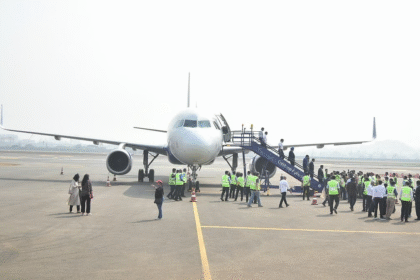Operation Akhal: 2 Brave Soldiers Martyred as Kulgam Encounter Stretches Into Day 9 of Intense Gunbattle
Operation Akhal in Kulgam enters Day 9 with fierce gunbattle claiming lives of 2 brave soldiers. Security forces continue intense counterterror ops in Jammu & Kashmir
At least two security personnel were killed in overnight firing as the gunfight in Jammu and Kashmir’s Kulgam district entered the ninth day on Saturday – one of the longest anti-terror operations in the valley.
The Army’s Chinar Corps confirmed that two personnel had lost their lives, identifying them as Lance/Naik Pritpal Singh and Sepoy Harminder Singh.
“Their courage and dedication will forever inspire us. #IndianArmy expresses deepest condolences and stand in solidarity with the bereaved families Operation continues,” the Chinar Corps said in a tweet on Saturday.

Eleven security personnel have been injured in the operation since the beginning of the operation. The operation is still ongoing, and further details are awaited, the report added.
Two terrorists have been killed in the encounter, which began on August 1 after security forces launched a cordon and search operation in a forest area at Akhal in the south Kashmir district.
The ongoing joint operation has been named ‘Operation Akhal’, and was launched after specific inputs about the presence of terrorists in the area was received.
Drones and helicopters are tracking the terrorists in the forested area, while para commandos are assisting in the effort to locate and eliminate those in hiding.
The operation is being monitored by senior police and Army officers including Jammu and Kashmir Police chief Nalin Prabhat and the Army’s Northern Commander, Lt Gen Pratik Sharma, reported PTI.
Kulgam, Jammu & Kashmir – In one of the longest-running counterterrorism operations in recent years, Operation Akhal in south Kashmir’s Kulgam district has entered its ninth day, marked by intense gunfire exchanges, heavy shelling, and tragic loss. On Friday, two Indian Army soldiers were martyred while fighting with unwavering courage against heavily armed militants holed up in the region’s treacherous terrain.
The protracted encounter has now become a defining moment in the ongoing fight against terrorism in the Kashmir Valley, underlining both the persistence of the security forces and the determination of the militants entrenched in the area.
Operation Akhal was launched on August 1, 2025, following specific intelligence inputs about the presence of multiple militants linked to Pakistan-based terror outfits in the Akhal forest belt of Kulgam district. The region’s rugged topography, dense tree cover, and strategically located hamlets have historically made it a challenging zone for security forces to penetrate.
Initial intelligence suggested that the group was heavily armed and involved in recent attacks on security personnel and targeted killings of civilians in the valley. Acting swiftly, a joint team of the Indian Army’s Rashtriya Rifles, Jammu & Kashmir Police’s Special Operations Group (SOG), and the CRPF cordoned off the suspected hideouts in the forest area.

However, what began as a search-and-cordon mission quickly escalated into a full-fledged gunbattle, as militants opened fire to break the security perimeter.
What makes Operation Akhal particularly significant is its length – nine consecutive days of sustained engagement, making it one of the longest continuous encounters in Kashmir in over a decade.
Security officials say the encounter’s drawn-out nature is due to the militants’ tactical use of terrain – shifting positions in thick forests, exploiting natural caves, and using civilian properties for cover. The presence of multiple small hamlets has forced forces to proceed with extreme caution to prevent civilian casualties.
A senior security officer told reporters:
“This is not a typical encounter that ends in 24 or 48 hours. The militants have planned their defence meticulously. They have stocked supplies, created escape routes, and are using the forest terrain to maximum advantage. Our forces are matching their tactics, but it takes time.”
Friday’s operations took a grim turn when two soldiers sustained critical injuries during an early morning exchange of fire in the Akhal sector. Despite being evacuated to a military hospital in Srinagar, both succumbed to their injuries.
The Indian Army identified them as Lance Naik Rakesh Kumar (26) from Himachal Pradesh and Rifleman Shubham Yadav (24) from Uttar Pradesh. Both had been part of several successful counterterror operations in the valley and were known for their exceptional commitment to duty.
In a solemn statement, the Army’s Srinagar-based 15 Corps said:
“We salute the supreme sacrifice of our brave soldiers who laid down their lives in the line of duty during Operation Akhal. Their courage and dedication will forever inspire the nation.”
Security sources believe the militants engaged in the operation are linked to Lashkar-e-Taiba (LeT) and Jaish-e-Mohammed (JeM). Both groups have been responsible for recent spikes in violence in south Kashmir, targeting both security forces and civilians.
Interrogations of previously captured militants had indicated that several high-value operatives were hiding in the Akhal forest area, possibly including a district commander of the LeT. This possibility has intensified the forces’ resolve to eliminate the threat despite the prolonged engagement.
Drone surveillance, night-vision equipment, and sniper units have been deployed to monitor movement and cut off possible escape routes.
Several factors have made the operation unusually long and complex:
Dense Terrain – The thick forest canopy and undergrowth make aerial visibility limited, forcing forces to rely on ground advances.
Booby Traps & IEDs – Security forces have encountered multiple improvised explosive devices laid along possible approach routes.
Civilian Safety – The proximity of small settlements means any aggressive use of heavy artillery could risk civilian lives.
Weather Conditions – Intermittent rain and fog have slowed progress, affecting both visibility and troop mobility.
A CRPF officer involved in the operation explained:
“We are dealing with highly trained militants who know this terrain like the back of their hand. They are using every possible advantage. But our patience and precision will ensure we succeed.”
The news of the soldiers’ martyrdom sparked a wave of grief and solidarity across the nation. Prime Minister Narendra Modi, in a post on X (formerly Twitter), paid tribute:
“We will never forget the bravery and sacrifice of our soldiers during Operation Akhal. The nation stands with their families in this hour of grief.”
Jammu & Kashmir Lieutenant Governor Manoj Sinha also extended condolences and reiterated the government’s commitment to eradicating terrorism from the region.
Locals in the Kulgam district remain tense, with many families temporarily relocating to safer areas. Civil society groups have appealed for an early resolution of the operation to prevent further loss of life.
Operation Akhal is part of a larger trend of intensified counterterror missions in south Kashmir this year. Data from the J&K Police shows that 2025 has already seen over 40 encounters in the valley, with more than 70 militants neutralized so far.
Security experts note that while infiltration attempts from across the Line of Control have reduced compared to previous years, the quality of training and weaponry of infiltrators has increased, making encounters deadlier and longer.
As Operation Akhal enters its tenth day on Saturday, security forces are reportedly closing in on the last known hideouts of the militants. Additional reinforcements have been sent to seal possible escape corridors towards the Anantnag district.
Military analysts believe that the final phase of the operation may involve a close-quarter assault, which could prove risky but decisive.
For the families of Lance Naik Rakesh Kumar and Rifleman Shubham Yadav, the pain of loss is immeasurable. Yet, their sacrifice stands as a stark reminder of the human cost of securing peace in the valley.
Operation Akhal has not only tested the operational stamina of India’s security forces but also highlighted the evolving nature of militancy in Kashmir. The prolonged engagement reflects the reality that terrorism in the region is increasingly adopting guerrilla warfare tactics, forcing security forces to adapt continuously.
As the tricolour-draped coffins of the two fallen soldiers make their journey back to their hometowns, thousands across India are expected to pay their respects. The nation watches closely, hoping for a swift conclusion to one of the valley’s most intense standoffs in recent years.








